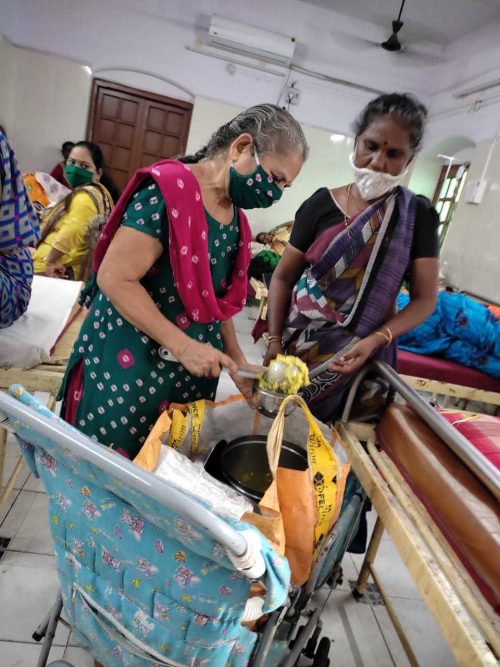This 63-YO With Parkinson’s Cooks 25 Kg of Khichdi Daily — & Gives It Away For Free
At 5 am each morning, 63-year-old Kiran Kamdar wakes up in her modest Palghar home and heads straight to the kitchen. A 50-litre cauldron awaits her, as do 15 kg of rice, 10 kg of lentils, and the early signs of Parkinson’s — tremors, stiffness, and pain.
But for the last five years, Kiran has followed this routine with unwavering dedication. With the help of her husband, Girish, and daughter, Palak, she prepares over 100 portions of warm, nourishing khichdi that are delivered to patients at the DM Petit Government Hospital by 7:15 am.
It began during the COVID-19 pandemic, when Kiran saw the struggles of overworked medical staff and relatives going hungry. She approached the hospital with a simple offer: “Let me cook for them.” Since then, she hasn’t missed a single day.
Diagnosed with Parkinson’s in 2018, Kiran faces challenges even in the smallest of tasks — peeling garlic, lifting jars, stirring. But she’s adapted: knives with custom grips, non-slip mats, wrist braces, and a lowered cauldron to ease back strain. Khichdi, she realised, is both forgiving to cook and easy to digest. Her version is mild and simple — turmeric, cumin, ginger — no onions, no heavy spices.
By 7 am, airtight containers are ready and packed onto a bright blue trolley. In the hospital corridor, patients, families, and even security staff line up to receive a warm meal. For those recovering from illness or far from home, her khichdi offers more than just food — it’s care, comfort, and community.
Kiran’s act of kindness has inspired many. Local shopkeepers donate grains and spices. A nearby bakery supplies containers. When her tremors are severe, volunteers — students, retired teachers, even past patients — step in to help.
 Kiran’s kindness has moved many — shopkeepers donate supplies, a bakery provides containers, and volunteers step in when her tremors grow severe.
Kiran’s kindness has moved many — shopkeepers donate supplies, a bakery provides containers, and volunteers step in when her tremors grow severe.
On Sundays, she teaches underprivileged children how to cook, clean, and stay safe in the kitchen. Her living room becomes a classroom, and her mission, a shared one.
By afternoon, her trolley returns home empty. Her body aches, but her spirit doesn’t waver. Every nod of thanks in the ward reminds her — you don’t need perfect health to serve; only the will to begin.
Edited by Khushi Arora
News